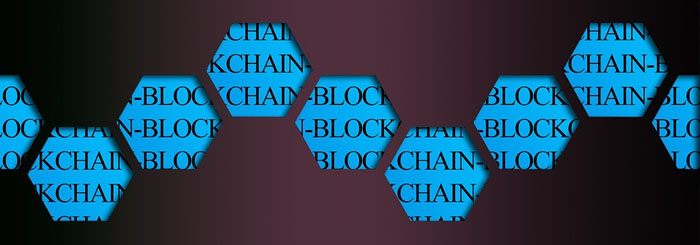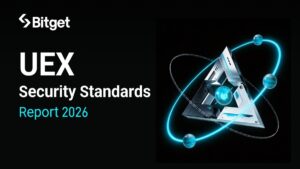Zero-Knowledge Proof or ZKP is one of the best features of cryptography in the blockchain industry that strengthens its security, privacy, and anonymity. The blockchain industry came with the promise of offering the best experience for those who look for a more secure and private world. Thanks to cryptography, the promise became one more step ahead, and blockchains can offer secure methods of authentication like ZKP.
Using ZKP, blockchains and services on them can provide authentication methods without the need to reveal sensitive information. This protocol is among the most famous products of cryptography science. After all, security, anonymity, and privacy are achievable with the combination of these features in the blockchain industry.
Zero-Knowledge Proof (ZKP)
As mentioned above, Zero-Knowledge Proof or ZKP or ZKP protocol is a cryptographic feature. According to Wikipedia:
“zero-knowledge proof or zero-knowledge protocol is a method by which one party (the prover) can prove to another party (the verifier) that a given statement is true while the prover avoids conveying any additional information. Apart from the fact that the statement is indeed true.”
The concept was introduced in 1985 by Shafi Goldwasser, Silvio Micali, and Charles Rackoff in their paper “The Knowledge Complexity of Interactive Proof-Systems.”
Some sources call ZKP, Zero Knowledge Password Proof. It helps the services to check and verify the password of users without any need to see the password. ZKP can cause many revolutionary changes in services. Using this protocol, the method of storing, providing, and acquiring the data will be changed.
What is ZKP?
Zero-Knowledge Proof or Zero-Knowledge Password Proof in the blockchain industry refers to a method of providing and verifying data – passwords, for example. In this form of authentication, no real data is shared among blockchain participants.
Completeness and Soundness are two main concepts of ZKP that ould be fulfilled in every transaction. Completeness is a task that should be done by the prober. The prover should show the knowledge of the information completely or to a high level of probability.
In the soundness part, the verifier has some tasks. This node should become aware that the prover has full custody of the provided information. All of these operations should happen without revealing the real information in the transaction.
As you may know, in blockchains, the data is shared among the users who run nodes or have staked in the network. It somehow decreases the level of anonymity on the blockchain. Protocols like ZKP offer new ways of sharing data that actually don’t need to reveal the real data. In simple terms, transactions can be confirmed using ZKP without needing all the participants of the blockchain to see the secret information in transactions.
Using ZKP, many challenges of security and privacy will be solved in the blockchain world. Big companies were always worried about using blockchains because of the lack of privacy in traditional protocols. They sometimes needed a private transaction channel while benefiting from a robust public blockchain. ZKP is now helping them preserve their confidentiality while having secure and fast transactions.
How Does it Work?
The ZKP should provide a combination of operations to be able to process the data without the need to reveal it. In blockchains that use this protocol, the application code runs off-chain. In some examples, the code is executed by a specific (single) node on the blockchain network.
For confirming the transactions, only a confirmation of the proper execution is provided to the blockchain. In other words, other nodes don’t see the application code and just confirm its execution.
The two main forms of zero-knowledge proofs are interactive and non-interactive. To persuade the verifier that they have specific knowledge, interactive ZKPs need some activities or actions from the prover. Mathematical probability principles are the main actions needed in interactive ZKPs.
In the Non-Interactive form of ZKP, no interaction between the prover and the verifier is needed. Verification processes can help after the transaction of data happens. This type needs extra computing power and middle software.
Advantages and disadvantages
Regarding the advantages of ZKP, simplicity and not needing to reveal sensitive information are among the top. Besides, no complicated encryption is needed in these protocols. Privacy is the other advantage that assures people that their data and sensitive information are safe. Besides, ZKP-based authentications are way more secure than traditional methods and increase the security of the blockchain.
There are some advantages to these methods, too. The method is limited to mathematical calculations, and other methods aren’t that accepted in ZKPs. The computation needed for deploying this type of authentication is huge, too. But there may come some methods that decrease the needed computing power. Like many other cryptographic solutions, Zero-Knowledge Proof is vulnerable to powerful computers like quantum ones. But it can’t be a real disadvantage- at least for now.
Applications
Every application that is concerned about security and privacy at a high level can use ZKP. Authentication systems in various services can deploy this method and verify users without the need to know their sensitive information – like passwords. Imagine just proving you have the password for an account without really typing it to enter the account.
One type of Zero-Knowledge Proof named zero-knowledge Succinct Non-interactive Argument of Knowledge (zk-SNARK) is being used in some cryptocurrency blockchains that offer privacy more than anything. Zcash is the most famous cryptocurrency using it. Tron and Ethereum are using some sort of this protocol, too.
Messaging applications are other examples of using ZKP for securing data. End-to-end encryption can be applied to messaging applications without the need for users to show their information to the servers of the application.
Zero-Knowledge Protocol
Zero-Knowledge Protocol is another name used for Zero-Knowledge Proof. in fact, ZKP is a protocol and sometimes is called Zero-Knowledge Protocol with unique characteristics. For having a ZKP protocol, some characteristics should be seen:
Characteristics
Trueness is the most important aspect of ZPK and refers to the provided information (think about password) being true and concise. When both parties of the transaction adhere to the rules, the verifier knows the trueness of the information without any need for extra actions by the user.
Confirmation in ZKP is mandatory in transactions. Verifiers won’t accept untrue data in any circumstance.
The last but not the least characteristic of a Zero-Knowledge Proof comes from its name. The verifier should not have any information from the actual data while verifying the transaction.
Conclusion
ZKP is not a new concept in the world of cryptography and mathematics. But with the advent and rise of blockchains with numerous cryptocurrencies, the protocol has shown its abilities very clearly. Zero-Knowledge Proof can be applied to blockchains and solve many of their security as well as privacy challenges. There is no need to show sensitive information to provers when using ZKP. As a result, authentication with more privacy and security is possible with this protocol.













